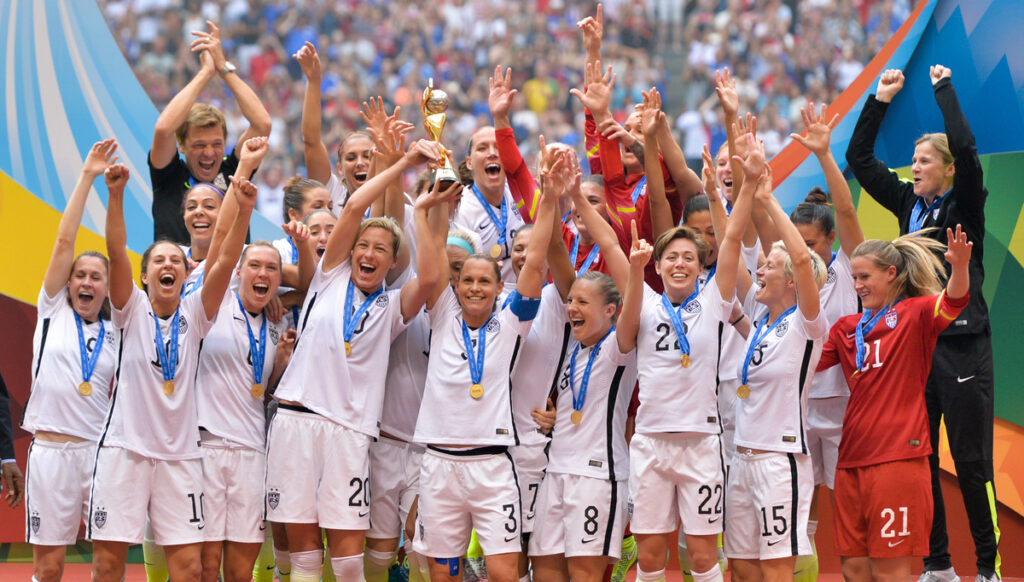Aminah Cole
Freshman, Bishop McNamara High School, Forestville, MD
Spring 2016
They’ve won three Women’s World Cup title championships and have been one of the most successful teams in international women’s soccer. They are ranked number one and were chosen in 1997 and 1999 as the U.S. Olympic Committee’s Team of the Year. Despite such accolades, as the U.S. Women’s Soccer team prepares for the 2016 Summer Olympics, fair pay has become an issue. The team has gone to battle to get fair wages.

Five members of the U.S. Women’s Soccer team have filed a wage discrimination lawsuit against the U.S. Soccer Federation. The suit filed in February with the Equal Employment Opportunity Commission states that the U.S. women’s soccer team generated nearly $20 million more in revenue 2015 than the U.S. men’s team. The problem is the women are paid about a quarter of what the men earn. Star player Carli Lloyd spoke with the Today Show about the concerns. “I think that we’ve proven our worth over the years. Just coming off of a World Cup win, the pay disparity between the men and women is just too large.” As a team the U.S. women got a total of $2 million after winning the World Cup in Canada in 2015. When the U.S. men played in the World Cup in Brazil in 2014, as a team, they collectively earned $9 million. They received this pay despite being knocked out in the round of 16.
Pay disparity regarding women in the U.S. has been around for more than 50 years. The Equal Pay Act of 1963 amended the Fair Labor Standards Act, aimed at abolishing wage disparity based on sex. 46 years later, in an effort to strengthen that measure, President Barack Obama enacted the Lilly Ledbetter Fair Pay Act of 2009. It extended the timeframe period which claimants can bring pay discrimination claims. “I signed this law .because I want young women like my own daughters to have chances and opportunities that my mom and grandmother never could have dreamed of. Thanks the relentless efforts of people like Lilly Ledbetter, those opportunities are already within reach. And thanks to this law we’re one step closer to fair pay for all Americans.”
The women soccer players aren’t alone. Other athletes have become increasingly vocal activists on gender equity in sports. One of them is Tim Howard, a goalkeeper with the U.S. Men’s Soccer team. “The women’s team should continue fighting for their rights and fight for what they think is just compensation” said Howard.
In a statement involving the Collective Bargaining Agreement, Jeffrey Kessler, the U.S. Soccer women players’ attorney, said quote “In early January, the Women’s National Team Players Association submitted a reasonable proposal for a new agreement that had equal pay for equal work as its guiding principle. U.S. Soccer responded by suing the players in an effort to keep in place the discriminatory and unfair treatment they have endured for years.”
As for where things currently stand for the U.S. women soccer players, the Equal Employment Opportunity Commission is conducting an investigation to determine if its findings warrant compensation to the U.S. women’s team.

